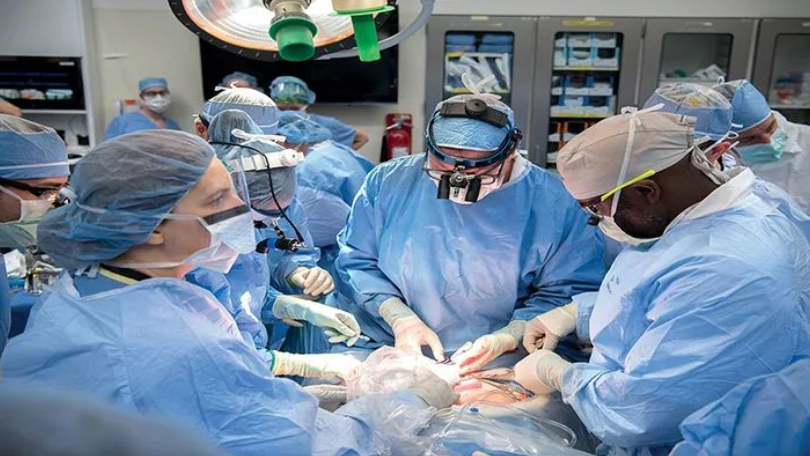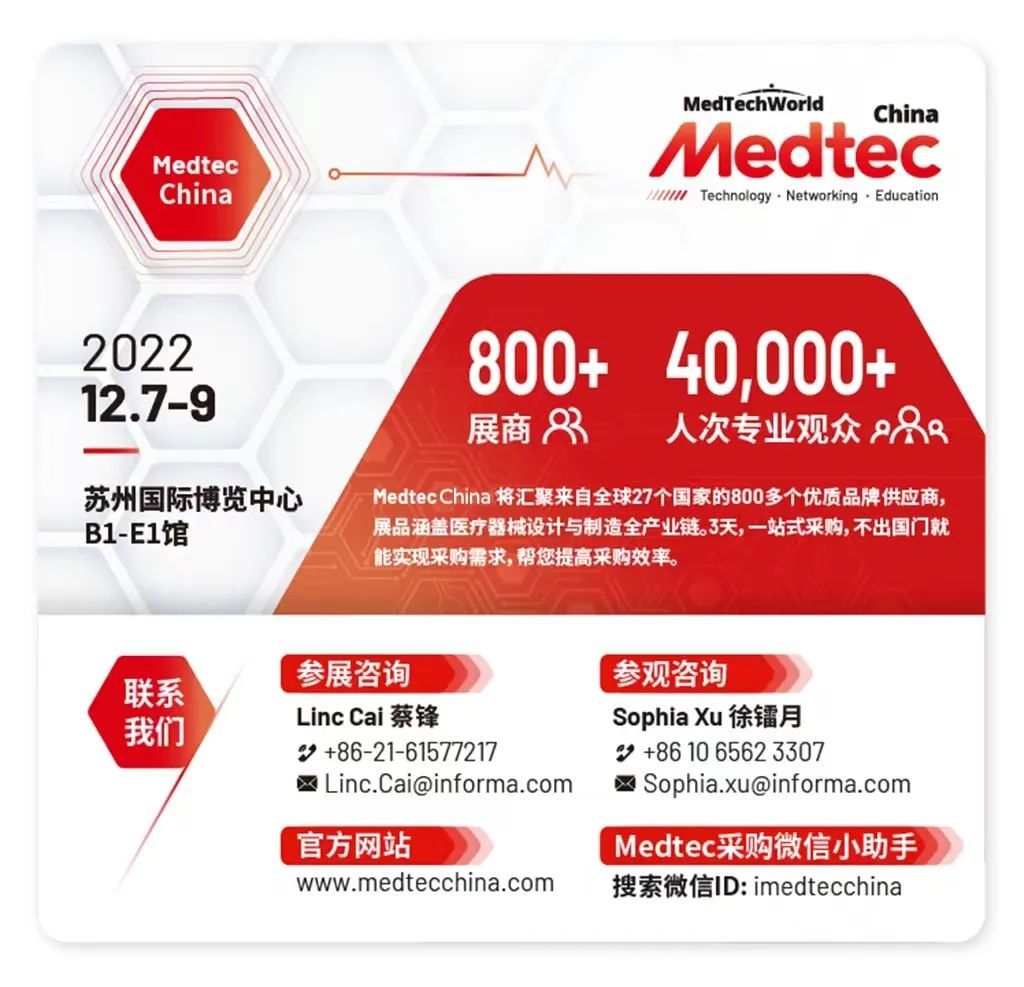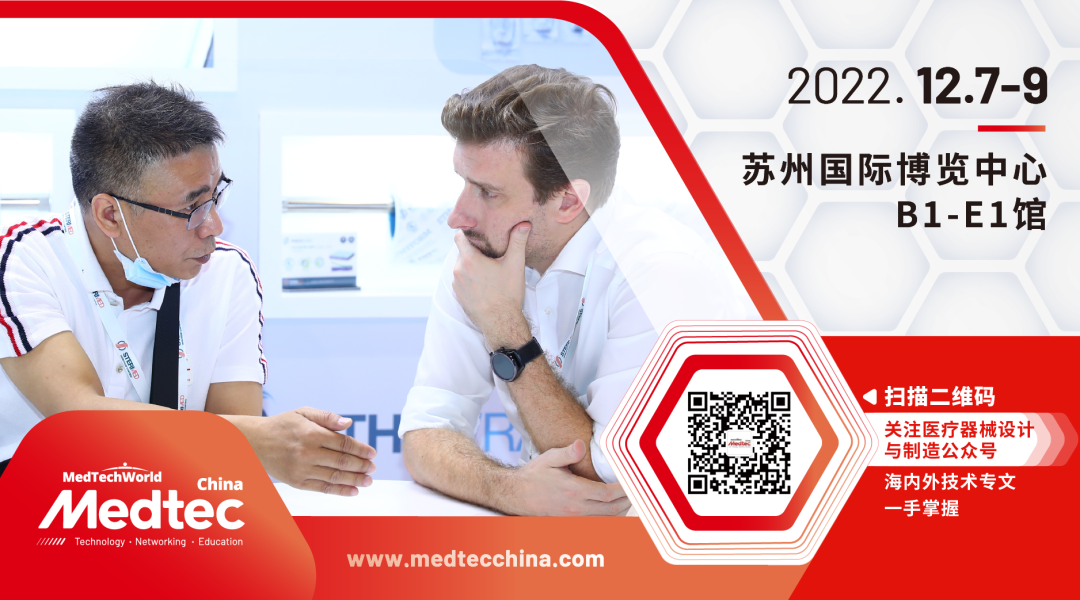×
News

21
2022
-
11
Cleveland Clinic Unveils Top 10 Healthcare Innovations for 2022 (Part 1)
The Cleveland Clinic, a leading global healthcare organization, has announced its top 10 healthcare innovations for 2022. The breakthrough Technologies list was selected by a committee of experts at the Cleveland Clinic, led by D. Geoffrey Vince, PhD, Executive Director of Innovation and Chair of the Department of Biomedical Engineering.
Author:
Gulf Times: A New Generation of mRNA vaccines. A novel PSMA targeted therapy for prostate cancer. New treatments to lower LDL cholesterol. These innovations will optimize and transform medicine in the coming year, according to an expert committee of clinicians and researchers.
The Cleveland Clinic, a leading global healthcare organization, has announced its top 10 healthcare innovations for 2022.The breakthrough Technologies list was selected by a committee of experts at the Cleveland Clinic, led by D. Geoffrey Vince, PhD, Executive Director of Innovation and Chair of the Department of Biomedical Engineering.

Article photo source: Internet
"At the Cleveland Clinic, our shared passion for providing quality care and an inherent culture of innovation foster an ongoing dialogue among our clinicians and researchers on health care improvement," said Dr. Vince. "That's why our experts have their finger on the pulse of innovative technologies that are changing the face of healthcare. The Top 10 Medical Innovation Initiative was launched to share these expert insights with the broader medical community, and year after year, our professionals continue to successfully predict advances in devices, technologies, topics and therapies."
New generation of mRNA vaccines
Advances in RNA preparation, purification and cellular delivery have led to broader applications of mRNA vaccines, such as cancer and Zika virus infection prevention. The technology is cost-effective, relatively simple to manufacture, and stimulates immunity in an entirely new way.
In addition, the COVID-19 outbreak has highlighted the need for rapid development of a globally deployable vaccine. The development, production, approval and deployment of an effective COVID-19 vaccine was completed in less than a year as previous research laid the foundation for the technology. This innovative technology has the potential to be used to quickly and effectively manage some of the most complex diseases in medicine.
PSMA targeted therapy for prostate cancer
More than 200,000 men in the United States are diagnosed with prostate cancer each year, making it the most commonly diagnosed cancer among American men. Accurate imaging is essential for tumor localization, disease staging, and detection of recurrence. PSMA is a highly expressed antigen found on the surface of prostate cancer cells and is a potential biomarker for the disease.
PMSA PET scans use a radioactive tracer attached to the PSMA protein, which is then combined with CT or MRI scans to visualize the location of prostate cancer cells.
In 2020, the technology was approved by the U.S. Food and Drug Administration (FDA) based on Phase III clinical trials that showed significant improvements in the accuracy of the technique in detecting prostate cancer metastases compared to traditional bone and CT scanning imaging.
When recurrent prostate cancer is detected early with a PSMA PET scan, targeted therapy can be performed in a personalized manner with stereotactic external radiation therapy, surgery, and/or systemic therapy. Visualization.
Medtec China 2022: Innovation Technology Forum and Regulation Summit 2022Technical Forum F: The 6th Medical Device Design ForumExplain cutting-edge topics, including the introduction of the R&D process of medical devices, the design needed in the R&D of high-end instruments and equipment, the innovation and creation of medical products under the background of domestic substitution. Scan the QR code to get the opportunity to attend for free

Medtec
Pre-register to win the gift
Scan the QR code on the left to complete pre-registration immediately and enjoy the colorful gifts!
New treatments to lower LDL
High levels of blood cholesterol -- particularly low-density lipoprotein (LDL-C) -- are known to be an important cause of cardiovascular disease. In 2019, the FDA reviewed inclisiran's application to treat primary hyperlipidemia in adults with elevated LDL-C who were treated with the maximum tolerated dose of a statin.
Inclisiran is an injectable small interfering RNA that targets the PCSK9 protein. It requires less frequent administration (twice a year) than statins, and is used in combination with statins to reduce LDL-C effectively and consistently. Its long-term effects may help improve medication adherence, a major cause of failure to lower cholesterol levels. Inclisiran, which was approved by the FDA in December 2021, is widely considered a boon for heart patients.
A new drug for type 2 diabetes
According to the World Health Organization, about 422 million people worldwide have diabetes, which affects how the body converts food into energy.One potential therapy is a weekly injection of dual glucose-dependent insulin polypeptide (GIP) and glucagon-like peptide receptor agonist (GLP-1) designed to control blood sugar.
GLP-1 and GIP receptors injected subcutaneously cause the pancreas to release insulin and block the hormone glucagon, thereby limiting blood sugar spikes after meals. In addition, it slows down digestion, allowing individuals to feel fuller for longer and consume less. So far, advanced phase III clinical trials have shown that the treatment significantly reduces hemoglobin A1C in patients with type 2 diabetes and reduces weight, making it potentially the most effective treatment for diabetes and obesity to date.

Medtec
Pre-register to win the gift
Scan the QR code on the left to complete pre-registration immediately and enjoy the colorful gifts!
Breakthrough treatment for postpartum depression
Experts believe the incidence of postnatal depression is likely to be at least twice as high as current statistics because many cases go undiagnosed. Currently, counseling and antidepressants are the main treatments, but some patients do not respond to them.
In 2019, the FDA approved an intravenous infusion therapy specifically designed to treat postpartum depression. The novel therapy can be administered continuously for 60 hours, using neurosteroids to control the brain's stress response.
This treatment is groundbreaking because it targets signaling that is recognized to be lacking in hormone-sensitive postpartum depression. In addition, the treatment seems to work quickly, whereas conventional antidepressants usually take two to four weeks to have a noticeable effect. Such a rapid treatment regimen would be a breakthrough for patients with this often neglected disease.
-- "The official video account of Medtec China has been opened" --
There have been many exhibitors, such as Tong Kuai, Dimu, Longhai Chemical, Mofang Precision, Yongxing, Shanghai Hanjie, Best, Kedebao and other exhibitors announced materials, quickly click to learn more exhibitors & exhibits information design details and manufacturing difficulties ~


Source:
Related news

